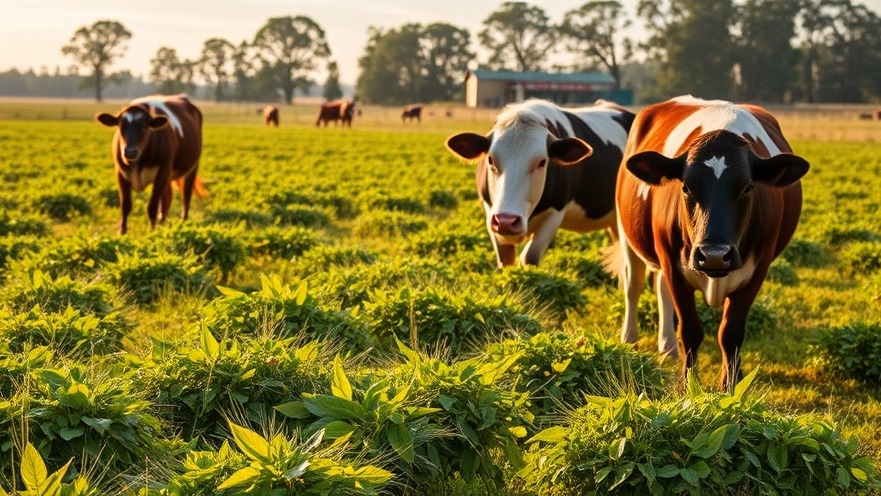
Understanding Soil’s Role in our Ecosystem
Soil is often overlooked in discussions about health, but it is a living, breathing ecosystem essential to our world. Healthy soil can absorb vast amounts of rainfall, acting like a sponge to prevent both droughts and floods. Unfortunately, modern agricultural practices, such as overgrazing and the use of chemical fertilizers, have severely degraded our soil, leading to catastrophic impacts on our environment.
The Power of Regenerative Farming
Regenerative farming practices, particularly rotational grazing, have the potential to heal our environment. This approach mimics natural ecosystems—using livestock effectively to fertilize and stimulate land regeneration. Renowned soil scientist Ray Archuleta emphasizes that restructuring how we manage livestock can revitalize degraded landscapes. For instance, when cows are moved strategically through pastures, they not only repopulate the soil with nutrients but also aid in reseeding efforts, effectively restoring the land.
Rebuilding Ecosystems Naturally
Instead of relying on synthetic inputs and chemicals to revive our soils, we should focus on ecological methods to rebuild them. Archuleta’s experiences demonstrate that land restoration demands a shift in perspective: we must see soil not just as dirt to grow crops, but as a complex habitat that deserves care and respect. This new understanding could revolutionize farming practices globally.
How You Can Be Part of the Change
As consumers, we can influence land restoration positively. By supporting regenerative farmers and choosing pasture-raised products, we help restore degraded ecosystems and promote biodiversity. Additionally, spreading awareness about sustainable practices within our communities can foster a more ecological mindset and encourage healthier food choices.
Taking Action for a Healthier Planet
Engaging with regenerative agriculture isn’t just beneficial for the land; it’s about securing a sustainable future for all of us. This holistic approach not only aims to combat climate challenges but also supports farmer livelihoods and contributes to global health. As you consider your next grocery shopping list, think about the impact your choices can make. Choose wisely to nurture not just your body, but the Earth as well.
 Add Row
Add Row  Add
Add 




Write A Comment